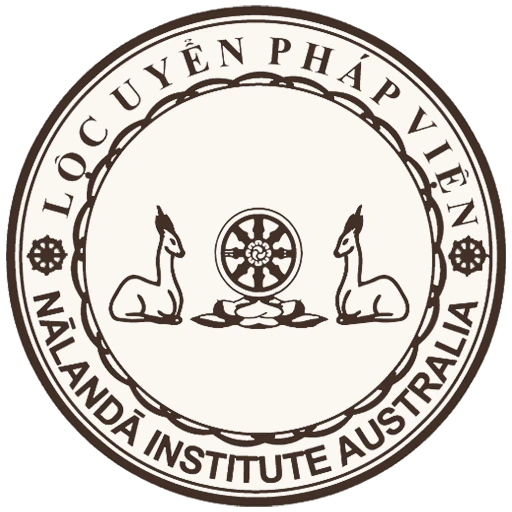| Vietnamese | English | Pāḷi |
| Ưa danh không tương xứng, Muốn ngồi trước Tỳ-kheo, Ưa quyền tại tinh xá, Muốn mọi người lễ kính. | The fool will desire undue reputation, precedence among monks, authority in the monasteries, honour among other families. | Asatam bhaavanam iccheyya purekkhaaranca bhikkhusu Aavaasesu ca issariyam puujaa parakulesu ca. |
Chuyện về Ông Citta Và Trưởng lão Sudhamma
Trưởng giả Citta ở thành Macchikàsanda, hài lòng vì cung cách của Trưởng lão Mahànàma trong nhóm năm vị Tỳ-kheo đang đi khất thực, nên nhận bình bát và mời Ngài vào nhà dâng cúng thức ăn. Cuối bữa ăn ông nghe pháp và chứng quả Dự lưu. Có niềm tin vững chắc, ông xối nước vào tay phải của vị Trưởng lão, dâng cúng cả khu rừng Ambatàka với vườn giải trí trong đó, làm tinh xá cho Tăng đoàn. Ngay khi ông nói “Giáo đoàn của Phật được thành lập vững chắc”, Đại địa chấn động đến mé biển. Sau đó tinh xá mới được xây dựng thật nguy nga, mở rộng cửa đón tiếp các Tỳ-kheo từ bốn phương.
Hai Ðại đệ tử của Phật nghe đồn đức tính của Citta nên đến Macchikàsanda để tỏ lòng quý trọng ông. Citta nghe tin liền đi nửa dặm đường chào đón, đưa hai Ngài về tinh xá, mời vào, làm tròn bổn phận với khách, và xin vị “Thống soái của niềm tin” cho ông nghe pháp. Tuy hành trình mệt nhọc, Ngài cũng nhận thuyết bài kinh ngắn, và Citta chứng Nhị quả. Ông đảnh lễ hai vị đại đệ tử và mời ngày hôm sau đến nhà thọ thực với một ngàn Tỳ-kheo đi theo. Xong ông đến mời vị tăng thường trú tại Macchikàsanda là Trưởng lão Sudhamma. Bất bình vì bị mời sau, Trưởng lão từ chối dù Citta cố nài nỉ.
Sáng sớm hôm sau, trong lúc gia chủ Citta chuẩn bị phẩm vật tốt lành thì Trưởng Lão cũng khoát y ôm bát đến, không phải làm thực khách mà để xem gia chủ cúng dường ra sao. Dù gia chủ hết lòng mời ngồi, Trưởng lão vẫn đứng yên, bảo sắp sửa đi khất thực. Quan sát hết phẩm vật chuẩn bị cho hai Đại đệ tử, Trưởng lão tìm cách quấy rối gia chủ, nói rằng:
Explanation
In summary, the story describing this verse is about the householder named Citta who sought to give alms to the two chief Disciples of Bhuddha (Mục Kiền Liên and Xá Lợi Phất), but the jealous resident monk Venerable Sudhamma felt jealous, offended and refused to attend; Ven. Sudhamma went to report it to the Buddha. The Bhuddha asked him to go back to Citta to apologise. Citta refused and so he returned to the Buddha. The Buddha admonished him with these verses after explaining to him “My son, a good bhikkhu (Bhuddhist monk) should have no attachment; a good bhikkhu should not be conceited and say ‘This is my monastery, this is my place, these are my lay-disciples,’ etc., for in one with such thoughts, covetousness and pride will increase.”
This verse describes the foolish bhikkhu (Bhuddhist monk named Ven. Sudhamma) who
desires four things:
Although this verse is aimed at the Buddhist monk, it can be applied to all human being regardless of gender, age marital status and economic status. It provides us with a framework for understanding of our actions and its consequences, and shows us how to reap the rewards of good living.
This verse teaches us not to harbour the thoughts of the fool. What are the thoughts of the fool? It involves the wordly thoughts that evolve around the desire to be respected and honoured, possession, greed, authority, control, and should be enamoured with gifts and venerations. The fool desires undeserved reputation, precedence amongst others, authority in monasteries or their residents, and honor amongst other groups. Such thoughts of the fool may give lead our greed and pride to grow. Although they will bring us the temporary pleasure or contentment, in Bhuddhism terms, such thoughts will harbour the bad intentions to which may be an investment to our future sufferings. To continue to harbour such thoughts is like building ourselves with lots of sufferings in the future. To be a better person (or genius) and to reap the rewards of good living, it is better to avoid these thoughts of the fool and see them like an old pair of shoes to be thrown away. For instance, don’t get attracted by the honour, wordly status, reputation, money and gifts from others.

Lộc Uyển Pháp Viện
183 Station Road
Deer Park VIC 3023
Australia
Email: [email protected]
Hội Phật Học Nalanda UK
Mã số: 1195038
83 Brookhill Road
Woolwich SE18 6 TT London
United Kingdom
Email: [email protected]
